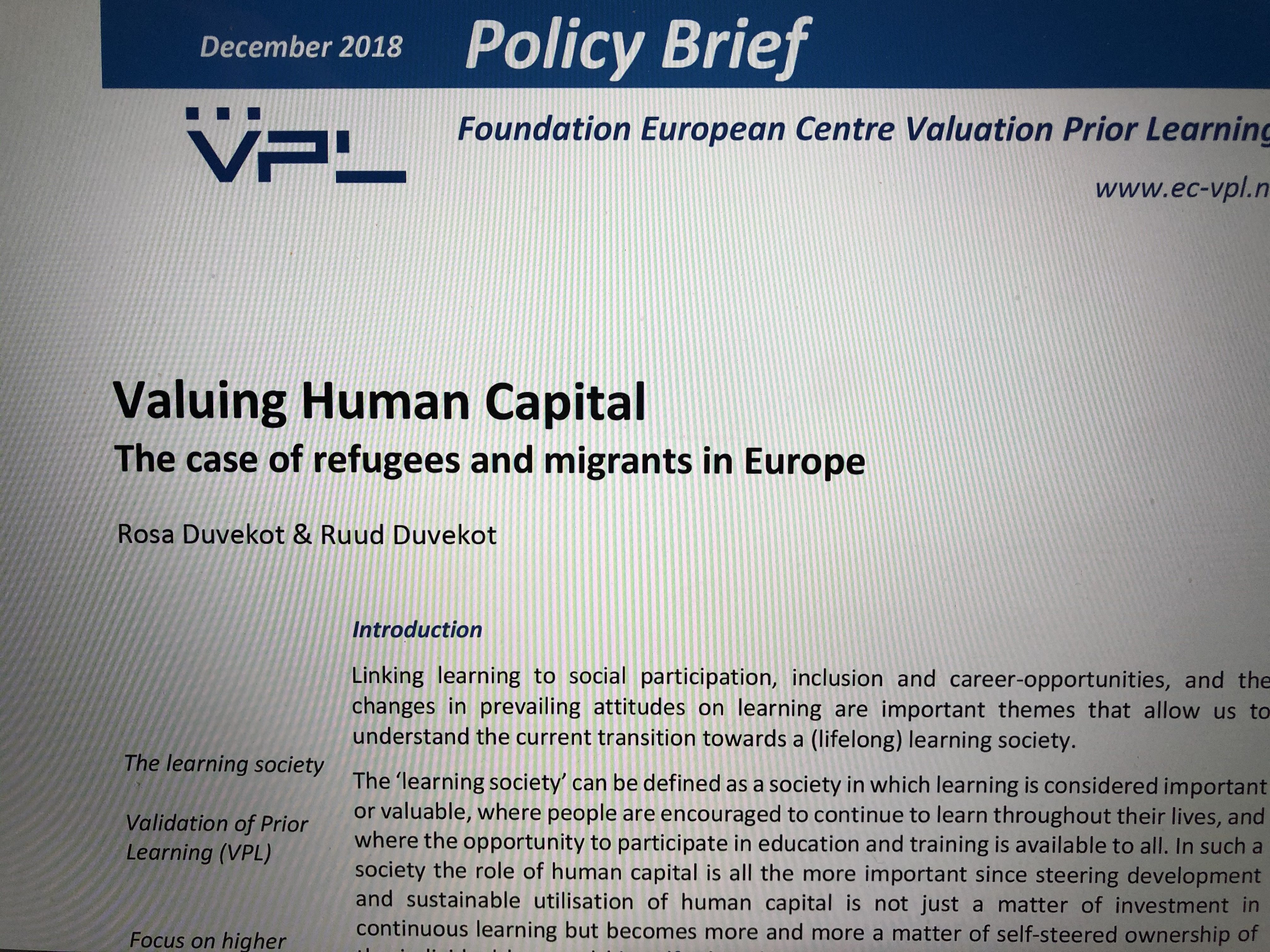Learning throughout life is important for everyone, whether individuals, organisations, schools or institutions.
Linking education or, to be more precise, learning to social participation, inclusion and career-opportunities, and the changes in prevailing attitudes on learning, are important themes that allow us to understand the current transition towards a lifelong learning society. This is all the more relevant if we analyse this transition on the personal level of higher educated refugees and migrants, integrating in a ‘new’ country.
VPL for higher educated newcomers. A VINCE case-study analysis 2018The Erasmus+ project Validation for inclusion of new citizens in Europe (VINCE) focused on a key phenomenon that can be distinguished as change-maker in the transition of refugees/migrants to new careers in their new country: the process of Validation of Non-formal and Informal Learning (VNIL). This case-study analysis by Rosa Duvekot and Ruud Duvekot investigates the phenomenon from both the top-down or system-perspective as well as the bottom-up or individual perspective.
The system is analysed by desk-research on country-level across Europe and input from 11 interviews with staff members involved in the VNIL-process in several countries; the analysis of the individual level is based on 43 in-depth case studies of migrants and refugees. The main questions to be answered were how and to what extent is VNIL facilitated across countries in Europe and how is this accessible for the target group of higher educated refugees and migrants?
In this policy brief, the summary of the research-project is published, including conclusions and recommendations:
Policy Brief – Validation for newcomers 2018
